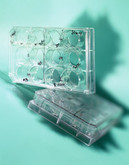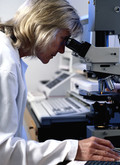Biosimilars/Research
Boehringer Ingelheim starts biosimilar rituximab trial
Germany-based Boehringer Ingelheim Pharmaceuticals (Boehringer Ingelheim) is starting a Phase III trial for a biosimilar version of rituximab.
Biosimilar comparability debate continues
Authors Schellekens and Moors comment on the response from EMA’s Biosimilar Medicinal Products Working Party to questions that they raised regarding EMA’s comprehensive biosimilar regulatory pathway [1]. While the authors express their appreciation of the openness of EMA in the way it has pioneered the biosimilars pathway in Europe, they still argue that EMA has failed to show the scientific need for biosimilar comparability [2].
EMA responds to questions over biosimilar comparability
EMA has responded to questions regarding its comprehensive biosimilar regulatory pathway. The pathway, which includes the need for new clinical trials and comparability studies that demonstrate quality, efficacy, and safety, has been accused of proving to be a barrier for the development of clinically superior compounds [1].
Patients and biosimilar interchangeability
Biopharmaceuticals or biologicals are complex medicines produced by living cells. Copies of approved biologicals have been introduced recently. Because of their intrinsic complexity such copies are similar but not identical to the reference medicine and are therefore called ‘biosimilars’. Approval of biosimilars requires a full quality analysis including a detailed comparison to the reference whereas non-clinical and clinical evaluations are less extensive.
Investigating G-CSF biosimilars approved in Europe
A life-threatening complication for patients undergoing chemotherapy is febrile neutropenia, involving a loss of neutrophils (white blood cells) and fever. Granulocyte colony-stimulating factors (G-CSFs) are growth factors which are used to restore neutrophil production.
Is pegfilgrastim superior to filgrastim for the treatment of febrile neutropenia?
A study to compare the cost-efficiency of three different recombinant granulocyte colony-stimulating factors (G-CSFs) for the treatment of chemotherapy-induced febrile neutropenia assumes that they are of comparable efficacy. But how solid is the evidence for this assumption? A study by Professor Matti Aapro and co-authors explores the available evidence regarding efficacy for the three G-CSFs, filgrastim (Neupogen, Amgen), pegfilgrastim (Neulasta, Amgen) and a filgrastim biosimilar (Zarzio, Sandoz/Novartis) and concludes that evidence behind previous claims of superiority for pegfilgrastim is ‘similar’ and ‘open to question’ [1]. Thus, originator and biosimilar filgrastim appear to be holding ground in the efficacy stakes.
Immunogenicity of biologicals
This article discusses the issue of immunogenicity with respect to originator biologicals and biosimilars [1].
Pricing of biosimilars
For small molecule generics, reductions in price of around 80% have been observed after the first six months to a year of generics entry to the market in countries such as Germany, UK and the US [1, 2]. Biosimilars, however, are an entirely different entity.
Factors affecting market access of biosimilars
Growth in the use of biosimilars is being driven by the need to reduce healthcare costs, patent expiries on blockbuster originator biologicals and better-defined regulatory pathways.
Testing for unwanted immunogenicity from biologicals
Immunogenicity caused by biologicals, both originator and biosimilar, is an important issue that was raised by Dr Wadhwa from the National Institute for Biological Standards and Control [1].













